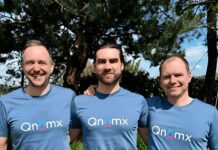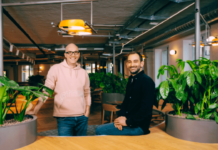French innovation has struck gold again with Lyon-based Bon Vivant. This precision fermentation startup is harnessing the power of biotech to craft animal-free milk proteins. And the cherry on top? They’re achieving this with a far lesser environmental impact than traditional dairy.
Bon Vivant’s simple yet powerful approach is paying off. In an environment where many tech founders struggle to raise funds, Bon Vivant’s laser-focused strategy has left their investors eager for more. The proof is in the pudding—or, in this case, the protein. Having raised €4M in their pre-seed round in April 2022, they’ve now clinched an oversubscribed €15M seed round, as revealed by their CEO and co-founder, Stéphane MacMillan. This round, co-led by Sofinnova Partners and Sparkfood, saw participation from heavyweights like Captech Santé, Alliance for Impact, High Flyers Capital, Kima Ventures, Founders Future, and Picus Capital.
But what’s their secret sauce? According to MacMillan, it’s all about the B2B approach. Rather than clashing head-on with the food industry, Bon Vivant has positioned itself as a supportive ally, supplying the industry with its innovative proteins. This distinction has not just attracted, but enamored investors.
MacMillan emphasized, “Being singularly B2B-focused sets us apart. Most European competitors still waver between B2C and B2B. Our clear and executed strategy has played a significant role in drawing investment.”
He goes on to discuss the broader implications of the startup’s mission. Instead of competing against dairy giants like Danone or Nestlé, MacMillan envisions partnering with them. To truly foster environmental change on a global scale, collaboration, rather than competition, seems to be the way forward.
When delving into Bon Vivant’s offerings, the company’s emphasis on versatility becomes apparent. They’re simultaneously developing microbial yeast strains for both whey and casein—two essential milk proteins. This dual approach is rather unique in the market, granting them an edge.
But the dairy landscape is vast, with many potential applications for Bon Vivant’s product, from milkshakes and yogurts to baked goods and ice creams. However, instead of being overwhelmed by the competition, MacMillan views it as an opportunity. The demand is so colossal that he believes the market is spacious enough for multiple players to co-exist and thrive.
Looking ahead, Bon Vivant’s strategy revolves around ramping up production and obtaining the necessary approvals. The goal? Embedding their precision-fermented proteins into a plethora of food items. Interestingly, their proteins are molecularly identical to those in cow’s milk. This means, theoretically, they could produce ‘vegan’ cow’s milk without a cow in sight.
Contrary to the battles seen between meat alternatives and traditional meat industries, MacMillan predicts a harmonious future between alt dairy producers and the dairy sector. He envisions their product being complementary to traditional dairy, potentially even seeing products with a blend of both.
Speaking about the environmental angle, Bon Vivant has showcased some compelling figures. Their early Lifecycle Assessment Report indicates that their precision fermentation could reduce greenhouse gas emissions by 97%, drinking water consumption by 99%, and energy use by half, compared to traditional dairy.
“This is the game-changer,” MacMillan quips. “Even if these figures shift slightly, the positive environmental impact remains immense.”
Reflecting on his entrepreneurial journey, MacMillan shared his aspiration for creating something impactful and long-lasting. With Bon Vivant and precision-fermented milk proteins, it’s evident that he’s found his calling.
Michael Krel of Sofinnova Partners encapsulated the sentiment well: “Bon Vivant’s trailblazing efforts in animal-free dairy proteins showcase a blend of innovation and sustainability. Their commitment to reshaping the dairy industry and ushering in a greener agri-food era aligns perfectly with our mission. We’re thrilled to support their journey.”





